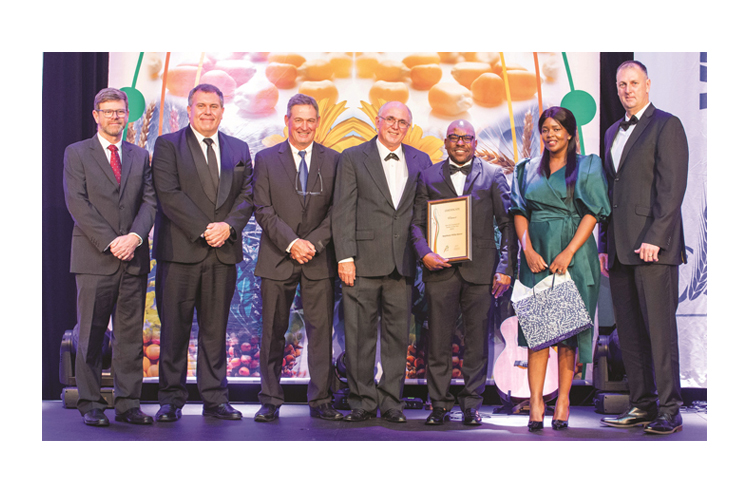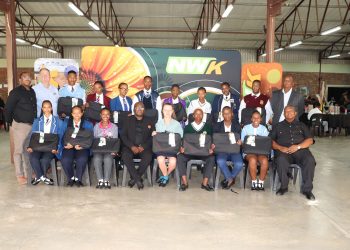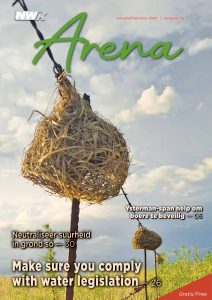
His inquisitive nature, a will to succeed and a passion for agriculture are what landed Phillip Manoto (46) of Lusthof in the Lichtenburg area the Grain SA/Absa/John Deere Financial New Era Commercial Farmer of the Year award.
Phillip was mentored by Du Toit van der Westhuizen, Grain SA’s regional development manager at the Lichtenburg office, and Leonard Thaphathi, manager of Developing Agriculture at NWK, who is extremely proud of Phillip’s achievement.
‘I almost cried that day,’ Leonard recalls. ‘We had been working so hard. Together we went through an excruciating drought, but we also shared in the success of having been able to bounce back from this… I sleep peacefully, knowing that I have done my part.’ He describes Phillip as more of a doer than a talker; and he was present during the interview in which Phillip elaborated on his farming career.
The ups and downs of farming
Phillip was born in Lombaardslaagte at Mooifontein near Mareetsane. By then his father, Labius (75), had already been farming with cattle, maize and sunflower for many years.
‘I was born a farmer,’ Phillip laughs. ‘I could drive a tractor by the time I was ten years old.’ Having worked with his father on the farm during school holidays, Phillip always knew that farming was what he wanted to pursue.
Nonetheless, he went to Klerksdorp Technical College (Vuselela) to learn more about electrical engineering. However, he never practised and returned to Lombaardslaagte to join his father on the farm full-time in 2002, when he was 25 years old.
The father-and-son duo is part of a Communal Property Association (CPA), and they are leasing 36 ha of communal land from other members of the CPA at Lombaardslaagte. Here, they manage a small cattle operation and later added small white beans to the maize and sunflower crop rotation.
They had been dreaming of acquiring their own land for many years, as farming on communal land poses many challenges. ‘You cannot pursue anything with passion on communal land. If you want to plant a crop, you have to wait for other members of the CPA to remove their cattle from a particular piece of land.
‘The breeding of animals is not controlled, as everyone’s bulls are roaming around freely. It is always risky to prepare soil for planting on leased land, as you run the risk of the owner saying that they want the land back the following year,’ Phillip explained.
As a result, Labius and Phillip approached FNB for a loan and bought Lusthof in 2010. They took 60 of their animals to the newly acquired farm of 550 ha and also established maize, sunflower and dry bean operations there.
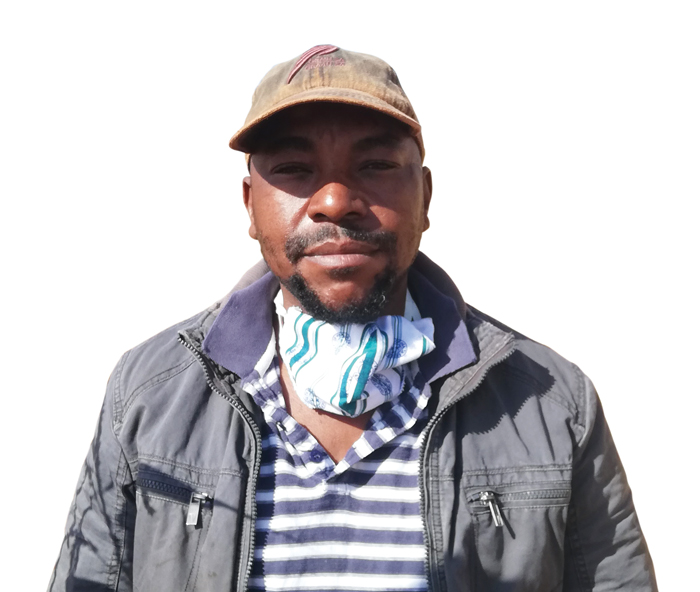
Partnering with mentors
Having been a member of Grain SA for many years and also part of NWK’s Farmer Development Programme, Labius encouraged his son to also become a member and seek the help of mentors. That is how Phillip and Leonard’s paths crossed in 2013, and Phillip joined Grain SA in 2016. Phillip is also a member of the Brooksby Study Group at Mooifontein.
Leonard mainly assisted Phillip with crop planning. Soil samples were taken, fertiliser recommendations made and a spraying programme for weeds followed. ‘We also link farmers with input suppliers. We act as mouthpieces and oversee the process. In some instances, we would advise against a supplier’s suggestions, should they recommend unnecessary applications,’ Leonard explained.
Leonard also assisted Phillip in his recordkeeping, which was one of the main judging criteria for this award.
Flourishing, not only surviving
Phillip had to repair many of the fences at Lusthof, apply lime to correct soil imbalances and establish storerooms.
Having moved 60 cattle from Lombaardslaagte to their new farm, some of these animals suddenly died mysteriously. Baffled, Labius and Phillip called in the help of a veterinarian who established that they died from having consumed a poisonous plant (poison bulb). The animals had to be moved and fed silage until all the plants could be manually removed.
Phillip would soon be plagued by a drought that would last several years. It started in 2013 and reached devastating measures by 2016. Phillip and Leonard went back to the drawing board and restructured Phillip’s farming operation to accommodate the drought.
He admits that he considered throwing in the towel at that time. Back then his son was only a few months old and he struggled to provide for his family.
Phillip relies heavily on his faith and knew the proverbial storm would eventually pass. ‘They were able to bounce back,’ Leonard smiles. ‘I was able to bring them back to a better farming practice, in better financial standing,’ he adds humbly.
After surviving the drought, Phillip’s farming operation at Lusthof started to flourish. In 2021/2022, he managed to harvest 4,5 t/ha of maize on 210 ha and 1,5 t/ha of sunflower on 235 ha. Like many other farmers in the area, his sunflower developed Sclerotinia as a result of the high rainfall.
He implements crop rotation as Leonard advises, depending on factors such as weather variables and input costs.
Crossing Bonsmara with Simmentaler, Phillip currently has 200 cows at Lusthof of which 120 are production animals. Apart from grazing, the cattle are fed mixtures of silage, maize and molasses. ‘When you talk Bonsmara, you talk money,’ Phillip says. ‘They are hardened animals and put on weight quickly.’ He recently replaced three of his breeding bulls with three new ones to widen the genetic pool.
Since the poisonous plants have been removed, Phillip’s biggest threat to his cattle operation is tick-borne diseases.
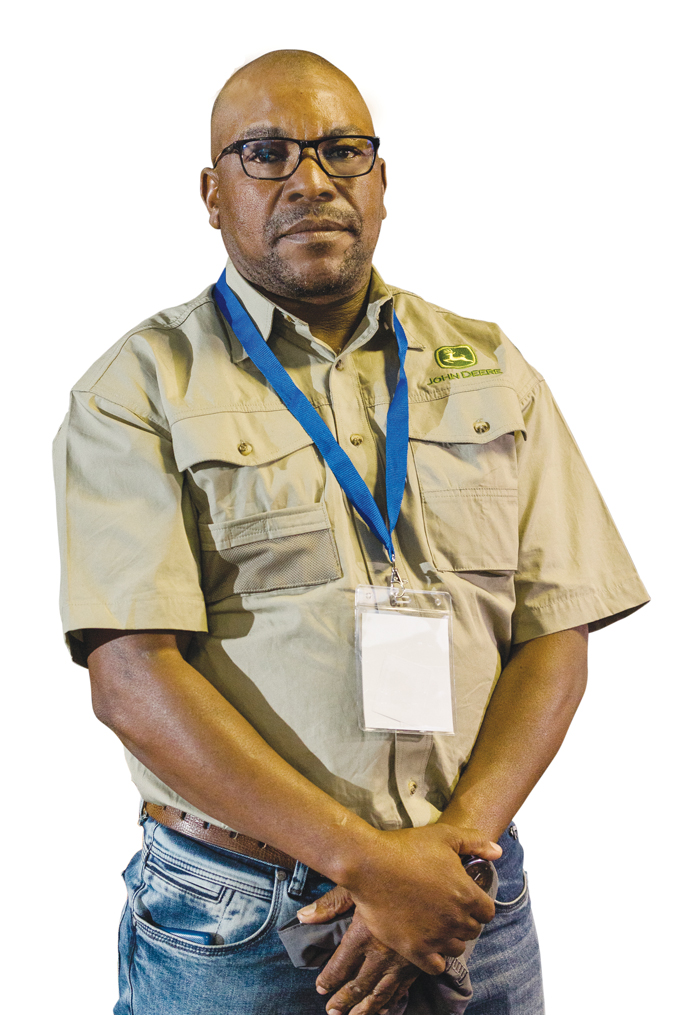
The right timing
Labius won the same award in 2008. Since then, Phillip harboured the same dreams of receiving it one day. He considered entering in 2018, but on hearing that Vuyani Lolwane, who farmed near Itsoseng, had entered that year, Phillip decided to stand down. Vuyani did win that year, but sadly passed away due to Covid-19 complications last year and would not see his friend win.
‘This year, I went for it… and entered.’ Phillip’s yields, financial management and bookkeeping were scrutinised. The judges also conducted a physical visit to the farm to inspect the condition of his implements. ‘It was quite nerve-wrecking,’ Phillip admitted.
It was a joyous day when he was announced as the winner and received a John Deere tractor as a prize. ‘The award now pushes me to work even harder,’ Phillip added.
‘He truly is a new-era farmer who has taken farming to heart, unlike other young people who prefer to leave the farm in pursue of other careers. He is very well experienced in what he is doing and manages the operation on his own. His management of labour, machinery and other aspects is on standard, and he is a farmer who is always asking for advice,’ Leonard said.
‘He is not conservative, but rather careful as he is not one to expand for the sake of hectares. He rather ensures that every hectare is worked optimally,’ Leonard adds. ‘He moves when he knows he has the capacity to go where he is headed.’
Why land reform seems to be failing
The conversation turns to land reform and why so many of these projects seem to be failing. ‘People get handed land during land reform projects, without ever having had to farm. They often lack the necessary passion and foundation. They are under the impression that farming will make them rich, which is wrong,’ Phillip says.
Leonard adds: ‘Land reform farms are given to beneficiaries, who have never farmed in their lives. They often don’t have the experience to farm. A lack of equipment, knowledge and experience on running a farm plays an important role in the failure of land reform projects.
‘Phillip had already acquired 1 000 hours of experience in farming at Lombaardslaagte, so by the time they moved to Lusthof, he could work successfully. In addition, they have a loan to pay back, as opposed to beneficiaries who don’t need to repay anyone. This keeps someone like Phillip awake at night, so he has better financial discipline.’
Wisdom from a winner
Phillip advises other aspiring farmers to not rush the process. ‘Farming is hard work. You need passion and the will to go on when things get difficult. When you look at your neighbours and successful farmers, don’t just copy their practices without acquiring the knowledge. Ask questions.
‘Be wary that there will be times when you go home without profits, but you have to soldier on.’
He concludes by saying that he wouldn’t be able to farm without God. ‘How could you spend money on seed and plant it… without praying?’



